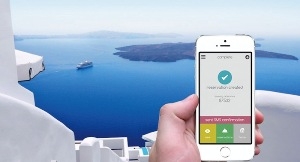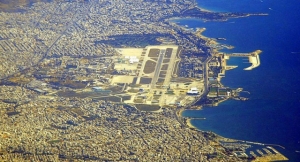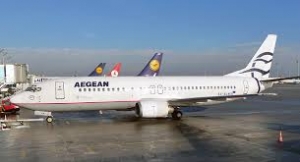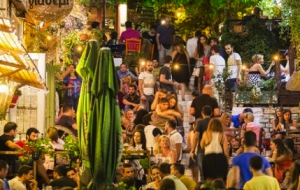On a green hill at the outskirts of the city port of Patras on the Peloponnese peninsula, some 200km west of Athens, are the headquarters of Achaia Clauss, a legendary winery in Greece with a history going back to the 19th century. The abode has conquered the hearts of both Greek as well as foreign wine lovers.
Amidst the economic crisis which has hit all sectors of the local economy in recent years, the company founded in 1861 by the Bavarian Gustav Clauss and run by Greek entrepreneurs for decades today looks to the future going East, as far away as China, said tour guide Tonia Rapti during a visit Saturday.
With a 6-million-liter annual production and 70% exports in over 40 countries and regions worldwide so far, the vast Chinese market seems the next reasonable step for the winery, the retired PR officer explained.
"We are currently making efforts to export to China. Our future undoubtedly lies there," she stressed.
Rapti talks like she is still working at the stone, castle-like facilities set up in 1861 by Clauss, who is considered as a pioneer in the industrialization of wine production in Greece.
After a business trip he fell in love with the beauty of the natural landscape and a local girl. He created a company and a big family.
After 33 years working at the winery, Rapti feels like a retired member of this extended family. Her younger colleague Yorgos is a fourth generation employee at Achaia Clauss.
One of his predecessors worked for the production of the first wine produced in modern Greece in 1873: Mavrodaphne, she explained while showing us the barrel which still contains it.
A liquor with a red ruby color, named after Daphne, Gustav's late fiance, Mavrodaphne is one of the company's best selling products. It is the wine used in the Holy Communion at the Greek Orthodox Church.
The 1873 wine is not for sale, but a bottle containing a few drops of the 1896 production, the year of the first modern Olympics, reaches up to €1,500 (US$2,055), while a three-year-old wine costs about €5 (US$7.50).
In one of the big oak carved barrels at the Imperial Cellar, Athena, the goddess of wisdom in ancient Greek mythology, is depicted offering wine to Hercules.
At the end of the tour, after taking a look at the two biggest barrels in Greece manufactured in 1882 in Trieste and each containing 13,195 liters of Mavrodaphne, Rapti and her colleagues offer visitors a unique opportunity to taste some of the excellent quality wine.
The winery, located among the vineyards, is one of the topmost tourist sites in the region, attracting some 100,000 visitors per year. Before the crisis, the numbers were double. Still visitors leave the site impressed.
"I feel as if I discovered a treasure today. This winery is part of our history. We need to work to preserve it and promote it," said Yorgos Kontos, an engineer who was visiting a friend in a nearby village, while posing in front of a barrel containing the production of 1940, when Greece entered World War II.
Among dignitaries who have visited the winery are the empress Sissy of Austria, German chancellor Otto von Bismarck and Hungarian composer Franz Liszt in the 19th century.
wantchinatimes.com











